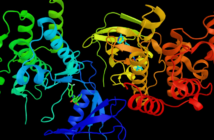Unique primary care residency program hangs in budget balance, despite primary care shortage.
It’s too soon for Shayla Durfey ScM’19 MD’19 to know whether she’ll apply for a Teaching Health Centers (THC) residency when she graduates from the Warren Alpert Medical School in a few years—but as she and two professors write online in JAMA, the unique opportunity won’t still exist for her or other medical students without action from Congress.

Shayla Durfey ScM’19 MD’19. Photo by Michael Salerno
Created under the Affordable Care Act, the $60 million THC program needs budget reauthorization by Sept. 30, 2017. The program currently funds 700 residents to serve as primary care providers at 59 community health centers, rural health clinics and Indian Health Centers in 28 states. The program helps to serve the outpatient medical needs of about 500,000 people, most of whom live below the poverty line and either have public insurance or none at all.
The nation also needs to train more primary care physicians, wrote Durfey; Eli Adashi, MS, MD, professor of medicine and former dean of medicine and biological sciences at Brown; and Paul George, MHPE ’01 MD’05 RES’08, associate professor of family medicine and assistant dean of medical education.
“There is a projected primary care shortage in the United States, especially with increased coverage and access under the ACA,” says Durfey, a student in the Medical School’s primary care and population medicine dual-degree program. “This program addresses that shortage by training people in the highest need areas.”
Read more here.




